
Joyce Reynolds-Ward has been called "the best writer I've never heard of" by one reviewer. Her work includes themes of high-stakes family and political conflict, digital sentience, personal agency and control, realistic strong women, and (whenever possible) horses. Joyce is a Self-Published Fantasy Blog Off Semifinalist, a Writers of the Future SemiFinalist, and an Anthology Builder Finalist. She is the Secretary of the Northwest Independent Writers Association, a member of the Science Fiction and Fantasy Writers Association, and a member of Soroptimists International.
1. Tell us a bit about yourself! Where do you call home and what do you write?
I'm a lifelong resident of the state of Oregon. I grew up near Eugene, and now split my time between Northeastern Oregon and Portland. The Pacific Northwest is a strong influence in the settings of my science fiction and fantasy stories. My fantasy series, Goddess's Honor, is for the most part set in the Pacific Northwest, rather than a medieval European background. My science fiction, when set on Earth, often uses Pacific Northwest backgrounds. I'll often obscure exact locations, but even then, I'll try to use historical and indigenous references to places. Thunder County/Thunder Lake/Thunder Mountains in the Martiniere stories is a rough approximation of Wallowa County, for example, but the name origin is a homage to the name of Young Chief Joseph. I also use Skene County/Ogden County—Peter Skene Ogden, an early fur trapper brigade leader—in some of my work, along with Blue Bucket—a name with origins in a settler myth about kids finding gold nuggets and putting them into a blue bucket while crossing the high desert of Oregon. The bucket was subsequently lost and no one knows exactly where that happened—in the Elkhorn Mountains near Sumpter, which was the site of early Oregon gold sites? Or somewhere else?
My science fiction often tends to focus on the impact of a technology on relationships amongst those who are creating it or trying to control it. My fantasy tends to be a bit more far-ranging. When I first started work on the Goddess's Honor books, there weren't a lot of non-European setting high fantasy works out there, especially featuring women leaders. So I wrote what I wanted to see, because I was tired of the same-old, same-old medieval stuff. Plus I was adhering to "write what you know." The closest I've ever been to real palaces have been the Louvre and the Rijksmuseum. Otherwise, the only castles have been Osaka Castle, the Imperial Palace, and a stone structure in Hovenweep identified as a "castle." For me, setting a fantasy roughly based on the country I know and love was more realistic than trying to adhere to a heritage that simply doesn't resonate with me. I am a settler descendant, and my European origins are lost in the mist. That tends to happen when you're a descendant of poor dirt farmers.
2. What drew you to that particular genre?
I enjoy reading a lot of genres, but the ones that resonate most with me are science fiction and fantasy. I have no interest in writing non-genre contemporary fiction, or mysteries. My brain just doesn't work that way. I want to write about people dealing with complex situations in the future.
3. What’s your best known work?
Well, none of it is particularly well-known, but I would have to say that the first book of my Goddess's Honor fantasy series, Pledges of Honor, is probably the best-known. It earned a Self Published Fantasy Blog Off semifinalist position, and it's my best-selling book.
4. What inspired you to write it?
I wanted to see non-European fantasy with predominantly female characters.
5. Tell us about your writing process. Are you a plotter, pantser or somewhere in between? How do you research?
My process often changes from work to work, as well as being affected by what's going on in my life. I tend to roughly plot my work unless I'm using more than two points of view. Then I often resort to more rigid outlines, in order to keep track of who is doing what, when and where. I'll do a lot of brainstorming about interactions between the main characters, and what their story arc is going to be in that book. If it's part of a series, then how does that book arc fit into the series arc? As I do this character building, I'll find things I need to research.
For the Martiniere Legacy, besides doing online research about agricultural technology, I also subscribed to several agriculture technology newsletters. That feeds into my current interest about climate change mitigation because a lot of what is happening in agtech right now also addresses climate change. The degree to which farmers have to compensate for wild weather swings—and the surge in pests and crop diseases as a result of the unsettled weather that comes with climate change—means there's a lot of research going on about how to mitigate these drastic changes.
6. What’s the strangest or most interesting thing you’ve researched for your writing?
I think agriculture technology wins, hands down. It ranges everywhere from agronomy to robotics. Finding out that the biobot mechanism I had conceptualised actually works with African clawed frog stem cells was wild.
7. What’s the most personal story/scene you’ve written and why?
Building up to Gabe's death in one of my most recent releases, The Enduring Legacy. I was going to write about it from his point of view, right up to that very scene—and then I realised that it would have more impact if I didn't do that. Ruby and Gabe's relationship is one of the most personal things I've written. Not because it reflects much about my life—heavens, no—but because I became deeply involved in their relationship dynamics. Both those characters had strong opinions about how they lived and died.
8. Who are your literary influences? In what way?
Outside of the SFF genre, I would point to Willa Cather—the Martiniere stories owe a lot to her work. John Steinbeck. Ivan Doig. Laura Pritchett—I workshopped with her as well, and that had a huge impact on my work. Jamie Ford—who, though he writes big bestsellers that are not genre, has a strong love for the genre. I also workshopped with him.
Within the sff genre? Originally, Tolkien. Zenna Henderson. C. J. Cherryh. Lois McMaster Bujold. My friends Alma Alexander and Phyllis Irene Radford. And others.
9. What books are on your bedside table right now?
I don't tend to read in bed. I read on my iPad, and have books stacked by my recliner. I'd have to look at the library books on my iPad, but my hard copy books right now include a reread of Stephen King's On Writing, followed by Writing the Other. Probably a reread of some of Ursula K. LeGuin's essays. I read a LOT on my iPad so those books turn over quickly. I just finished Craig Johnson's excellent Hell and Back in the Longmire series, and think it should be considered for a genre award.
10. Last and most important, where can we find your books/stories?
My books are available on Amazon, Apple, Barnes and Noble, and Kobo. Your local bookstore should be able to order some of the paperbacks through Ingram, primarily the Martiniere books. Your local library should be able to order the ebooks through Hoopla or Overdrive.
Follow Joyce on these platforms!
CounterSocial (joycereynoldsward)
Liked this interview? Sign up to Nikky's mailing list to get a free story along with monthly updates, articles and interviews delivered straight to your inbox!

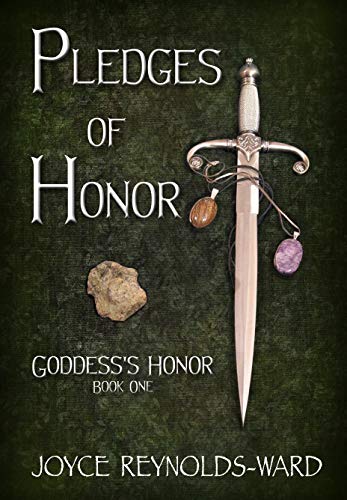

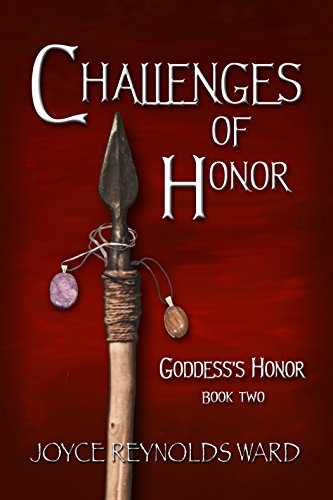

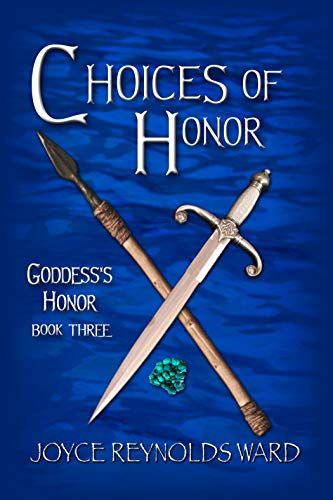

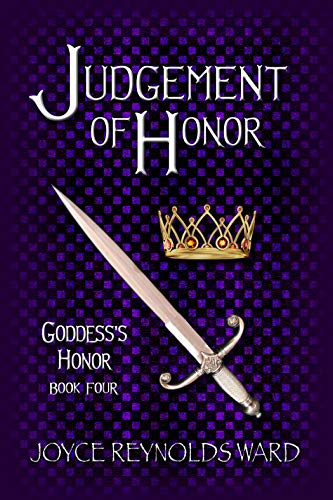



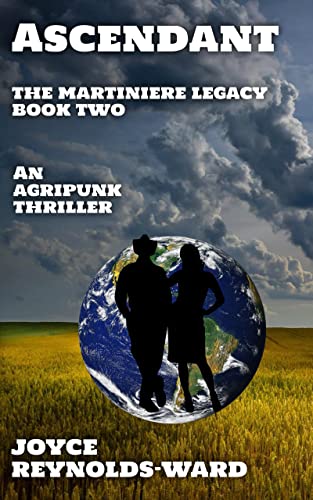

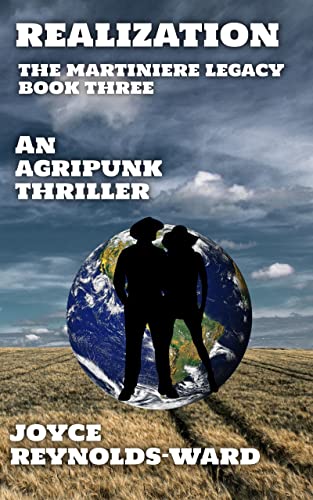

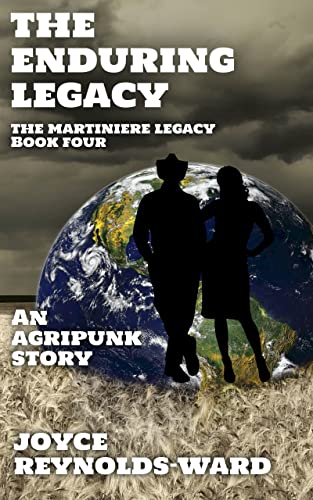
Comments